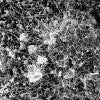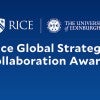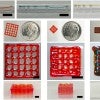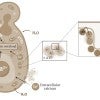
Wastewater study monitors Houston schools for viral threats
A new study by Rice University and the Houston Health Department finds that wastewater-based monitoring is an effective way to detect viral outbreaks in schools.

Wastewater study monitors Houston schools for viral threats
A new study by Rice University and the Houston Health Department finds that wastewater-based monitoring is an effective way to detect viral outbreaks in schools.

Rice University joins national semiconductor research effort
Rice University is one of 14 academic institutions to join the Center for Heterogeneous Integration of Micro Electronic Systems, a $32.7 million project created by the Semiconductor Research Corporation’s Joint University Microelectronics Program 2.0.

Brandon Levin wins NSF CAREER Award
Brandon Levin, an assistant professor of mathematics at Rice University, has won a prestigious National Science Foundation CAREER Award to pursue his research on major unsolved problems in number theory.

Theory can sort order from chaos in complex quantum systems
Theory can sort ‘order’ from ‘chaos’ in complex quantum systems.

Lauren Stadler has won an NSF CAREER Award
Engineering’s Lauren Stadler has received a CAREER Award from the National Science Foundation to improve wastewater treatment by harnessing the power of microbiomes.

Rice U.’s Taiyun Chi wins NSF CAREER Award
Taiyun Chi, an assistant professor of electrical and computer engineering at Rice University, has won a prestigious National Science Foundation CAREER Award to research the development of a high-performance neural interface and a noninvasive deep-brain-stimulation system.

Potential for profits gives Rice lab’s plastic waste project promise
Rice University scientists create carbon nanotubes and other hybrid nanomaterials out of plastic waste using an energy-efficient, low-cost, low-emissions process that could also be profitable.

Engineered wood grows stronger while trapping carbon dioxide
Rice University scientists have figured out a way to engineer wood to trap carbon dioxide through a potentially scalable, energy-efficient process that also makes the material stronger for use in construction.

Rice scientists reengineer cancer drugs to be more versatile
Rice University scientists enlist widely used cancer therapy systems to control gene expression in mammalian cells, a feat of synthetic biology that could change how diseases are treated.

Rice-U. of Edinburgh partnership funds research for global impact
Rice University and the University of Edinburgh in Scotland have unveiled the winners of the inaugural Rice-Edinburgh Strategic Collaboration Awards as part of their historic joint research initiative launched last year.

Mosquito’s DNA could provide clues on gene expression, regulation
Rice University researchers discover that the Aedes aegypti mosquito’s DNA has the physical properties of a liquid crystal, a unique feature not found in any other species that could provide new clues on the factors that govern gene expression and regulation.

Peptide 3D-printing inks could advance regenerative medicine
How do you build complex structures for housing cells using a material as soft as Jell-O? Rice University researchers have the answer with a new 3D-printing ink.

Molecular machines could treat fungal infections
Rice scientists show that light-activated nanoscale drills can kill pathogenic fungi.

Two Rice University professors elected AAAS fellows
Rice University professors Thomas Killian and Marek Kimmel are elected fellows of the American Association for the Advancement of Science, a distinction that honors scientists, engineers and innovators whose efforts on behalf of science and its applications are scientifically or socially distinguished.

Rice lab uncovers dynamics behind protein crucial in breast cancer
Just as a puppeteer moves a puppet by manipulating its strings, estrogen receptors, which play a crucial role in breast cancer, work in similar ways when they facilitate the interaction between hormones and DNA, according to Rice scientists.